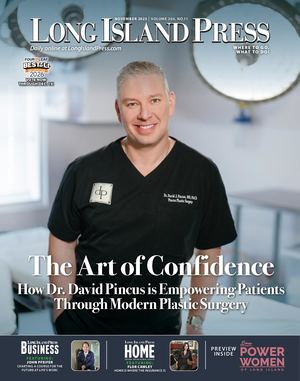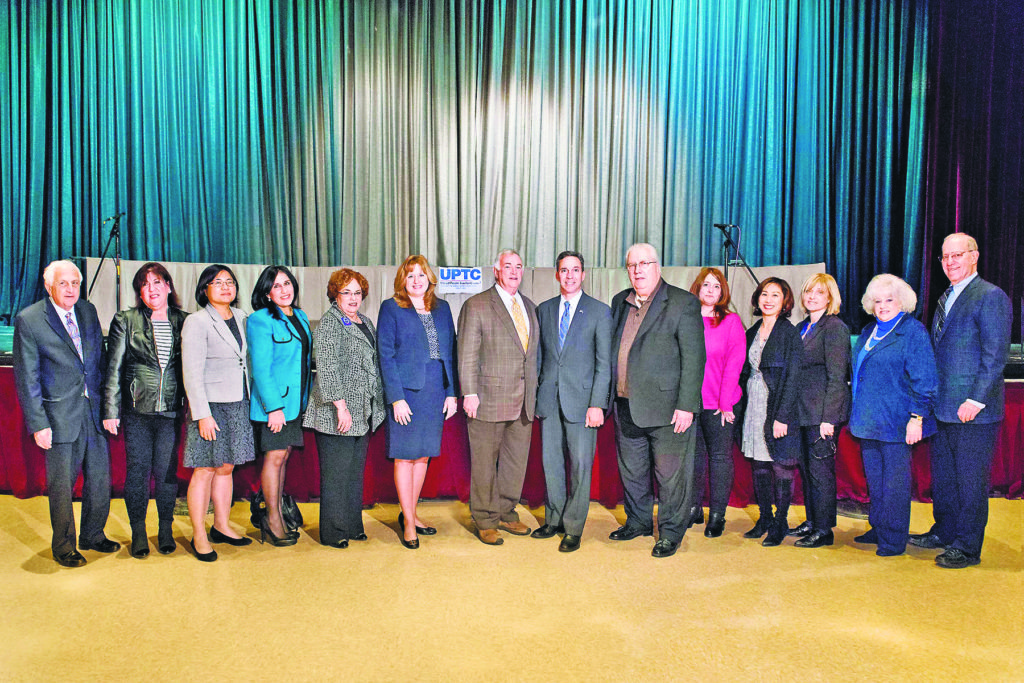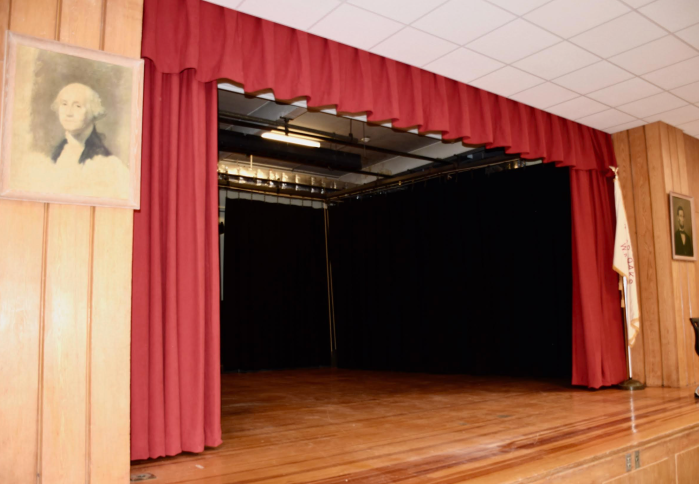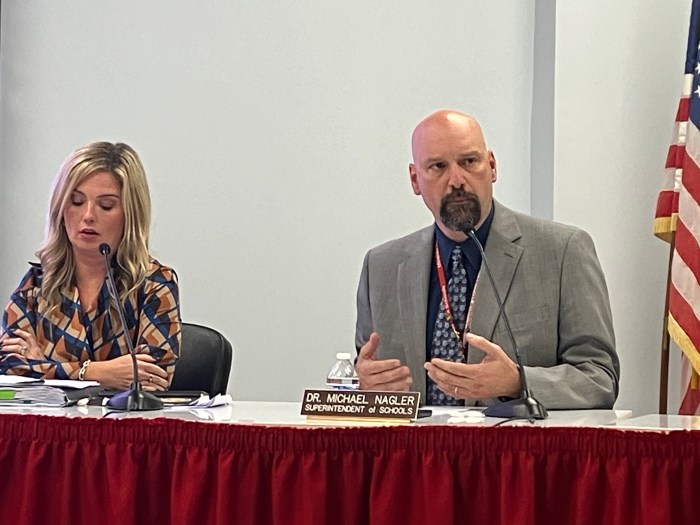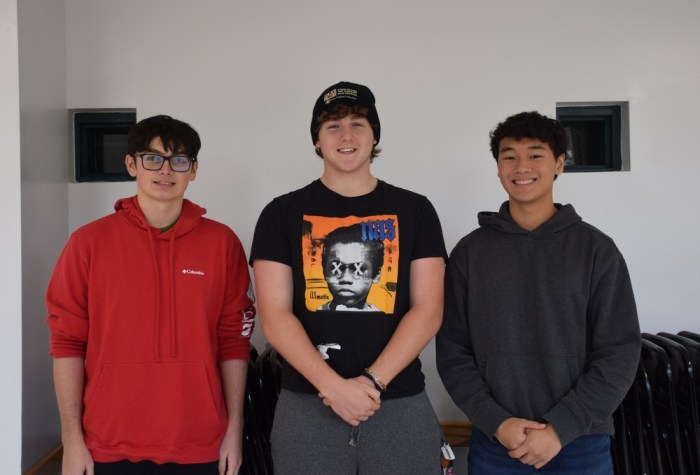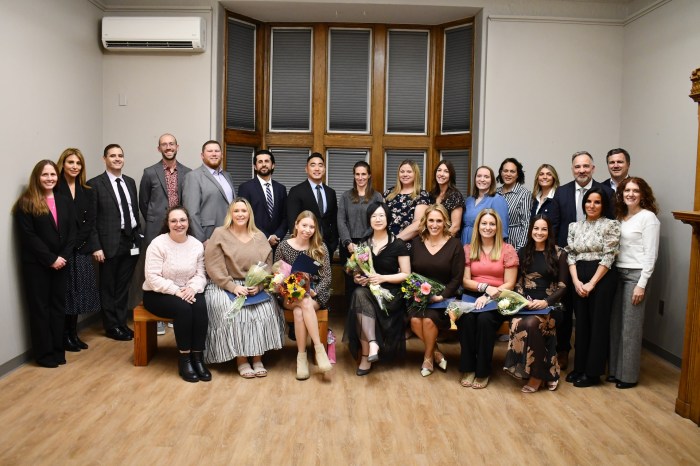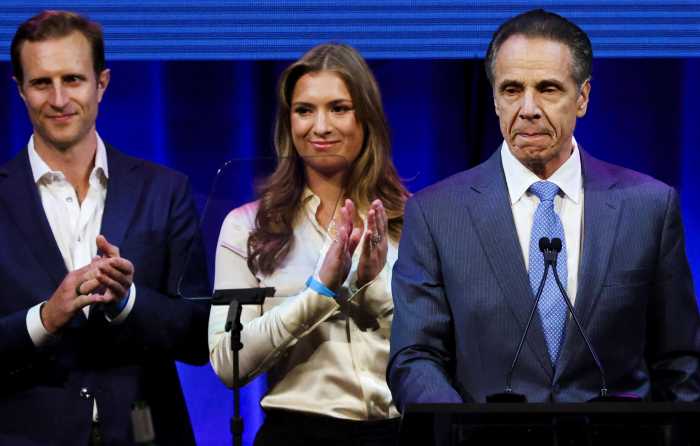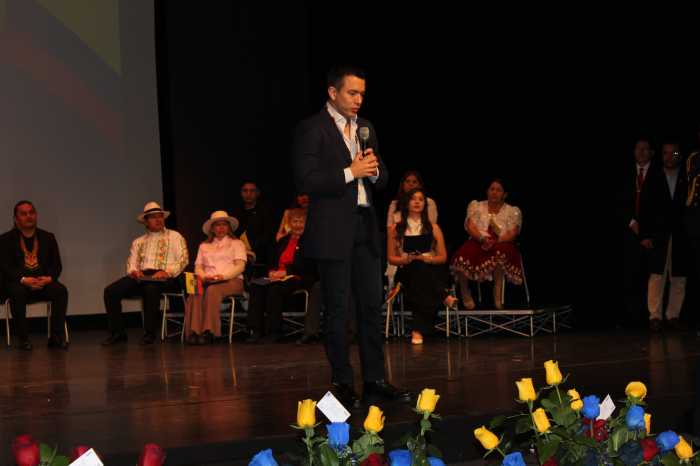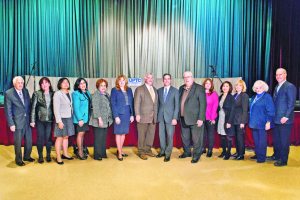
(Photo by Jeff Barlowe)
With the sweeping changes to education in New York State as of late—including funding cuts, tax caps, excessive assessment testing and the controversial Common Core learning standards—communities have been more concerned than ever over the quality of the schooling that their children are receiving.
In order to address these issues and more, the United Parent Teacher Council (UPTC) and the Great Neck Teachers Association (GNTA) held a panel discussion with state and school district officials on the current challenges and future direction of public education in the auditorium of Great Neck South High School on Nov. 23, entitled Public Ed in NYS—Where Is It Going?
The discussion included many distinguished guests, including members of local parent-teacher associations, civil leaders and elected officials, all of whom shared their opinions on the state of education in New York today; what is being done right, what is going wrong and what can be done to ultimately fix it.
Carl Marcellino, NY state senator and chairman of the Senate Education Committee, said that the most significant issue facing New York State education could be summed up in one simple word: trust—or a lack thereof when it comes to the implementation of the Common Core, the state rollout which has been described as poorly done and lacking in both creativity and flexibility.
“I think many of our parents and teachers are upset, and one of the reasons why is because there’s been a lack of communication and a number of pronouncements from up high without any way for teachers and parents to ask questions,” he said. “Do these people know our kids? How they learn? You have to get to know the kids, talk to them about what their problems are before you can make decisions about their education…trust and communication are the issues we need to address—that the state is working with teachers and not against them.”
NY State Senator Jack Martins was another member of the panel, and he openly admitted that the introduction of the Common Core was subpar, and that much effort should be put into it.
“If you look at Common Core and how it has been implemented, I don’t think you’ll have to go real far to see that perhaps we have gone in the wrong direction…I’m on record as having said that,” he said. “Once upon a time, New York State was recognized as the Gold Standard for education in the United States and we’re getting away from that. Many people think that we should roll back the Common Core…I think that we can bring back those high standards ourselves and enable our teachers to provide the quality education that we need without doing it in a cookie-cutter fashion and without treating our children like they’re robots. We know that every child is unique and different, and I predict that significant changes are on their way.”
NY State Assemblywoman Michelle Schimel recounted a number of problems and concerns that various superintendents of schools in her district communicated to her regarding education in NY, and among them were not only the Common Core and rampant assessment testing, but budgetary issues in the form of the NYS-mandated two percent tax cap imposed upon school districts as well.
“My role is to bring the views of my district to the Assembly Majority Conference, and we need the Assembly, we need the Senate, we need the governor…with that, I believe, we’re finally going to effect change,” she said. “My main concern is that everyone is coming at me with different things…we need a united front. The stronger we are in our united consensus will make my legislative part easier.”
Roger Tilles of the NY State Board of Regents said that he also believes that major changes are coming down in regards to the Common Core, a program that he noted he was against from the beginning.
“The state and federal government really pushed this program…there was $700 million being dangled in front of New York State. The governor said that we couldn’t afford not to take it and passed this program…I was the only regent at the time to vote no,” he said. “Since that time, I believe the governor will change that policy and I’m looking forward to that…I believe that we never would have gotten to this problem if the governor had not put education policy-making into the budget process. However, I don’t believe that the Common Core needs to be thrown out…the standards need to be reviewed and changed, which is already being done.”
After the guest panelists spoke, questions regarding the panel topic of education in NY were taken from the audience as well.
